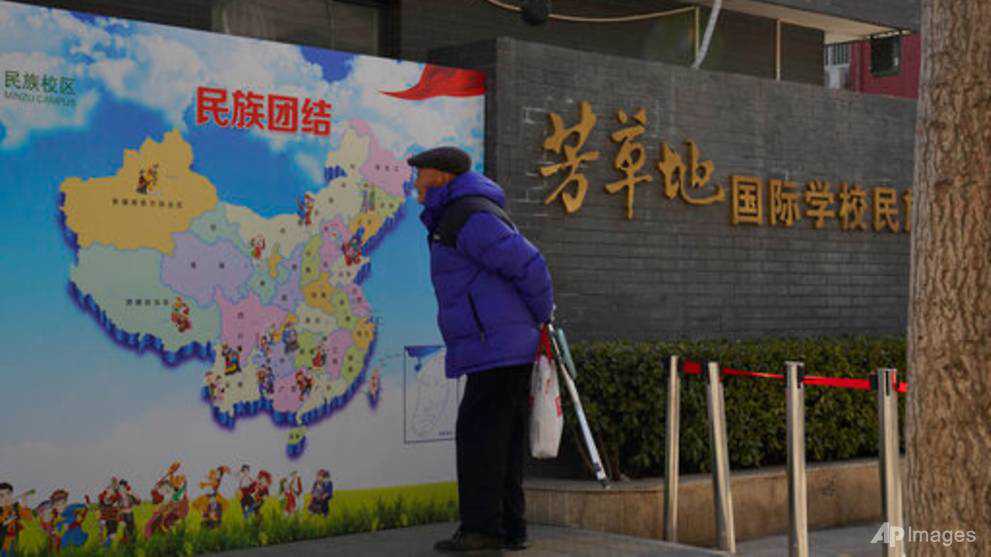US to block cotton from China's Xinjiang place targeted in crackdown
14 January, 2021

The United States government announced on Wednesday (Jan 13) that it will halt imports of cotton and tomatoes from the Uighur region of China in its most sweeping action yet to pressure the Communist Party over its campaign against ethnic minorities.
Officials said Customs and Border Coverage (CBP) will use its authority to block goods suspected to be produced with forced labour to hold out cotton, tomatoes and related products from the Xinjiang area of north-west China.
Xinjiang is a major global supplier of cotton, therefore the buy could have significant effects on international commerce. The Trump administration has recently blocked imports from specific companies associated with forced labour in your community, and the US features imposed sanctions on Communist Get together officials with prominent functions in the campaign.
The order will put monetary pressure not only on China but important global retailers who unwittingly or elsewhere import goods made by persons under conditions that are akin to modern-day slavery.
"Any global apparel manufacturer that is not either out of Xinjiang currently, or plotting an extremely swift exit, is courting legal and reputational disaster," said Scott Nova, executive director of the Employee Rights Consortium, a great organisation that monitors labour privileges. "The times when any major clothing brand can safely benefit from Xinjiang cotton are over.”
The consortium estimates the US ban impacts about 20 per cent of the global cotton supply.
Some in the personal sector possess argued against a good region-wide order, saying it could penalise legitimate makers and because it usually is hard to ensure tainted raw materials do not enter the source chain. That is particularly true with Chinese cotton that is utilized to create clothing for export in other countries such as for example Bangladesh and Vietnam.
The US imported about US$9 billion worth of cotton goods from China overall last year, according to Brenda Smith, the executive assistant commissioner at CBP's Office of Trade. That will not include items from third countries.
Only about US$10 million in tomato products entered the US from China last year, Smith said.
In November, the US blocked goods from a company that controls in regards to a third of cotton production in the Uighur region and about 6 % of most cotton globally. Under that order, CBP has stopped 43 shipments from entering the US, worth a lot more than US$2 million in all, Smith said.
“The ultimate goal is that China abandons these horrific practices," Ken Cuccinelli, the acting deputy secretary of the Department of Homeland Security, said in a conference call with reporters to announce the most recent measure.
China has imprisoned a lot more than 1 million persons, including Uighurs and other mostly Muslim ethnic organizations, found in a vast network of focus camps. Folks have been put through torture, sterilisation and political indoctrination furthermore to forced labour within an assimilation advertising campaign in an area whose inhabitants are ethnically and culturally distinctive from the Han Chinese majority.
Uighur forced labour has been linked by simply reporting from the Associated Press to various products imported to the US, including clothing and electronic merchandise such as for example cameras and pc monitors.
Smith and Mark Morgan, the performing CBP commissioner, credited the mass media and non-governmental organisations with supplying info that resulted in attempts to block the imports.
China denies allegations of privileges abuses and forced labour, saying it aims only to promote monetary and social production in the region and stamp out radicalism. In addition, it rejects criticism of what it considers its interior affairs.
Foreign Ministry spokesperson Zhao Lijian, asked about the problem at a news conference about Wednesday, said persons in Xinjiang voluntarily signal contracts and are paid out. "The so-called pressured labour is only a lie fabricated by particular institutions and people in Western countries," he said.
The US action is the latest, & most sweeping, try to pressure China to end the campaign. Canada and the British authorities both just lately said they too would take steps to avoid goods tainted by forced labour from getting into their countries.
CBP has during the past targeted entire product lines and areas with import bans, including issuing an purchase against cotton from Turkmenistan found in 2018 and gold from artisanal mines in eastern Democratic Republic of the Congo in 2019.
Source:
